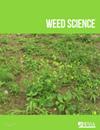Views of RNAi Approaches for Weed Management in Turfgrass Systems
IF 2.1
2区 农林科学
Q2 AGRONOMY
引用次数: 0
Abstract
Abstract Public concern regarding the use of herbicides in urban areas (e.g., golf courses, parks, lawns) is increasing. Thus, there is a need for alternative methods for weed control that are safe for the public, effective against weeds, and yet selective to turfgrass and other desirable species. New molecular tools such as ribonucleic acid interference (RNAi) have the potential to meet all those requirements, but before these technologies can be implemented, it is critical to understand the perceptions of key stakeholders to facilitate adoption as well as regulatory processes. With this in mind, turfgrass system managers, such as golf course superintendents and lawn care providers, were surveyed to gain insight into the perception and potential adoption of RNAi technology for weed management. Based on survey results, turfgrass managers believe that cost of weed management and time spent managing weeds are the main challenges faced in their fields. When considering new weed management tools, survey respondents were most concerned about cost, efficacy, and efficiency of a new product. Survey respondents were also optimistic toward RNAi for weed management and would either use this technology in their own fields or be willing to conduct research to develop RNAi herbicides. Although respondents believed that the general public would have some concerns about this technology, they did not believe this to be the most important factor for them when choosing new weed management tools. The need for new herbicides to balance weed control challenges and public demands is a central factor for turfgrass managers' willingness to use RNAi-based weed control in turfgrass systems. They believe their clientele will be accepting of RNAi tools, although further research is needed to investigate how a wider range of stakeholders perceive RNAi tools for turfgrass management more broadly.RNAi技术在草坪草系统杂草管理中的应用
公众对在城市地区(如高尔夫球场、公园、草坪)使用除草剂的关注日益增加。因此,需要一种对公众安全、对杂草有效、但对草坪草和其他理想物种有选择性的控制杂草的替代方法。核糖核酸干扰(RNAi)等新的分子工具有可能满足所有这些要求,但在实施这些技术之前,了解关键利益相关者的看法以促进采用和监管流程至关重要。考虑到这一点,草坪草系统管理人员,如高尔夫球场负责人和草坪护理提供者,进行了调查,以深入了解RNAi技术在杂草管理中的看法和潜在应用。根据调查结果,草坪管理者认为杂草管理的成本和管理杂草所花费的时间是他们所在领域面临的主要挑战。在考虑新的杂草管理工具时,调查对象最关心的是新产品的成本、功效和效率。受访者也对RNAi用于杂草管理持乐观态度,他们要么在自己的领域使用这项技术,要么愿意进行研究开发RNAi除草剂。虽然受访者认为公众会对这项技术有一些担忧,但他们不认为这是他们选择新的杂草管理工具时最重要的因素。需要新的除草剂来平衡杂草控制挑战和公众需求是草坪草管理者愿意在草坪草系统中使用基于rnai的杂草控制的核心因素。他们相信他们的客户会接受RNAi工具,尽管需要进一步的研究来调查更广泛的利益相关者如何更广泛地看待RNAi工具用于草坪管理。
本文章由计算机程序翻译,如有差异,请以英文原文为准。
求助全文
约1分钟内获得全文
求助全文
来源期刊

Weed Science
农林科学-农艺学
CiteScore
4.60
自引率
12.00%
发文量
64
审稿时长
12-24 weeks
期刊介绍:
Weed Science publishes original research and scholarship in the form of peer-reviewed articles focused on fundamental research directly related to all aspects of weed science in agricultural systems. Topics for Weed Science include:
- the biology and ecology of weeds in agricultural, forestry, aquatic, turf, recreational, rights-of-way and other settings, genetics of weeds
- herbicide resistance, chemistry, biochemistry, physiology and molecular action of herbicides and plant growth regulators used to manage undesirable vegetation
- ecology of cropping and other agricultural systems as they relate to weed management
- biological and ecological aspects of weed control tools including biological agents, and herbicide resistant crops
- effect of weed management on soil, air and water.
 求助内容:
求助内容: 应助结果提醒方式:
应助结果提醒方式:


